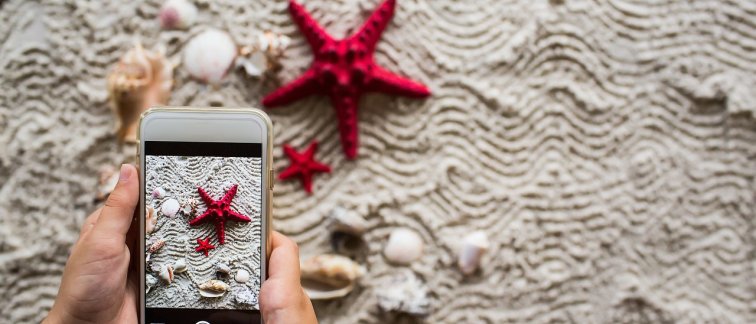By Jordi Cabanas-Danés
The fortunate among us have spent some form of time off in the past weeks and perhaps, for some, that will still be happening in the coming weeks. While being on holidays might be a perfect time to explore new destinations, spend quality time with loved ones or work on back-burner projects, it is also (more or less unconsciously) a time for reflection. Curiously enough, far from being a calm period for us at the Doctoral School, we see that during the summer holiday season more PhD candidates seek contact with us for coaching and advice. As much as I think it’s always great to look for support and wanting to work on personal growth and on an enhanced wellbeing, it shouldn’t merely be a “summer project”. In fact, I believe that priority should be given to these topics at any point of the year, even when you feel swamped with work or daily obligations, or especially at those moments I should say.
A blank canvas
You wake up on a holiday day, the alarm clock doesn’t go off at the usual time (hopefully later), or perhaps it doesn’t go off at all. You might be sleeping in a bed away from home and you might spend the rest of the day in a very different way than you would usually do. In other words, your life becomes a new blank canvas to be filled with new routines, experiences and emotions. But then, after a few days have passed and you’ve painted a few strokes on the new canvas, questions arise: if life can also be like this, am I then happy with my career? with my partner? with my choices?
Once again, it’s great to find the time and the space to reflect on your own life goals, dreams and overall wellbeing but we should be aware of the purpose of reflecting: to evaluate and make the necessary adjustments. Therefore, believing that how we feel and what we do in a period free of certain responsibilities, and filled by new stimuli should be our life goal can lead to rushed decisions, which might not always be in line with our needs and identity. In other words, instead of replacing our work-life painting with our holiday canvas, we should use the techniques and ideas we have learned while painting our holiday draft to improve our work-life masterpiece.
Reality check
And then, you’re suddenly back home, it’s time to go to bed because tomorrow you’re working again and the holiday nostalgia hits. The day after, you realize that nothing has magically changed and you need to come to terms with reality again. Why do we need to be so emotionally polarized between holidays, or free time in general and work or what we call our routine? Why is it so hard for us to see the whole thing as a continuum, instead of longing for the holidays the whole year through and dreading the moment we need to be back at work? The simple answer has to do with how we perceive being away from work and routine as an escape from everything which is not aligned with our needs, values and interests. So if we want to bridge the two scenarios, instead of being less emotionally-polarized, the line of thought shouldn’t (only) be: I look forward to the holidays to spend more quality time with my loved ones but instead, how can I spend more quality time with my loved ones?, period.
Positive changes
Of course you will might have to come to terms with the fact that you cannot change/control everything nor is the goal to live in a constant holiday feeling. But only when we dare staring at the holiday canvas, not with nostalgia, but just to see what colors or techniques we’d like to use on our life-work painting, we will succeed in implementing those positive changes that will truly bring our work-life balance in genuine balance.
Do you recognize yourself in this article? The PhD advisors are here for you. Get in touch with us for a consultation (phdadvisor@amsterdamumc.nl).

